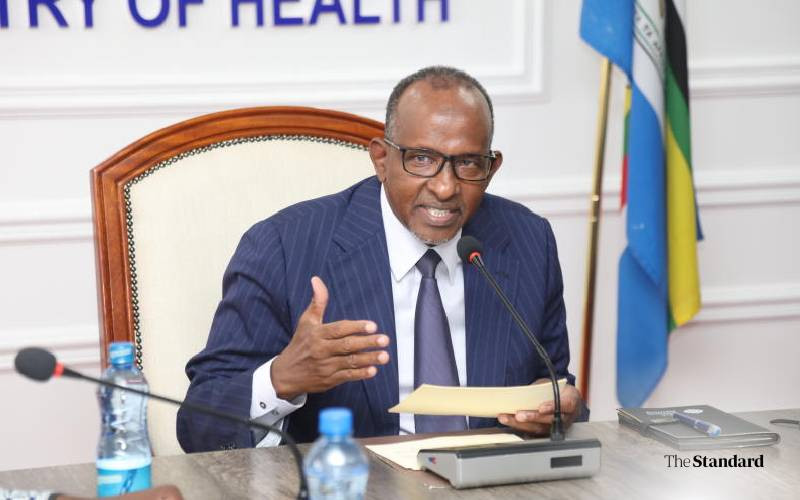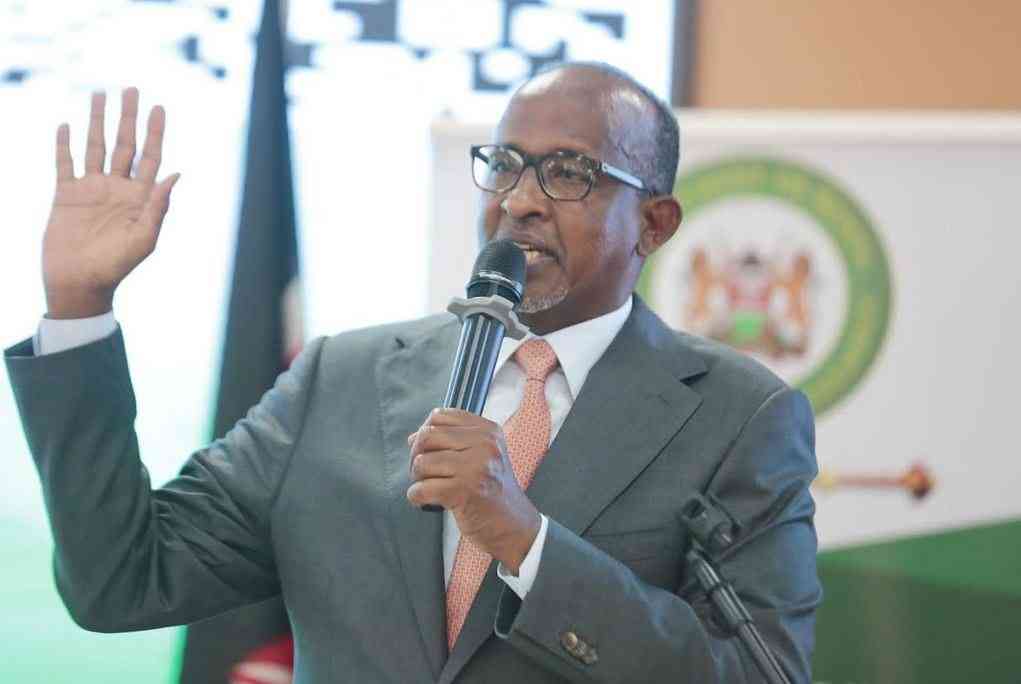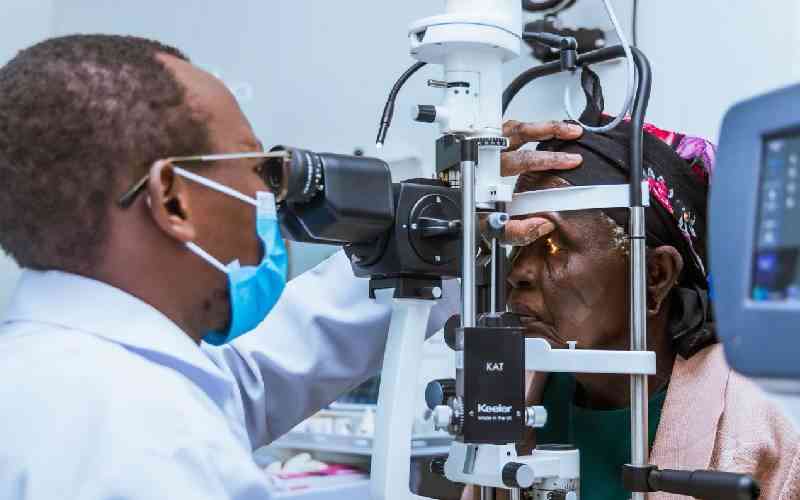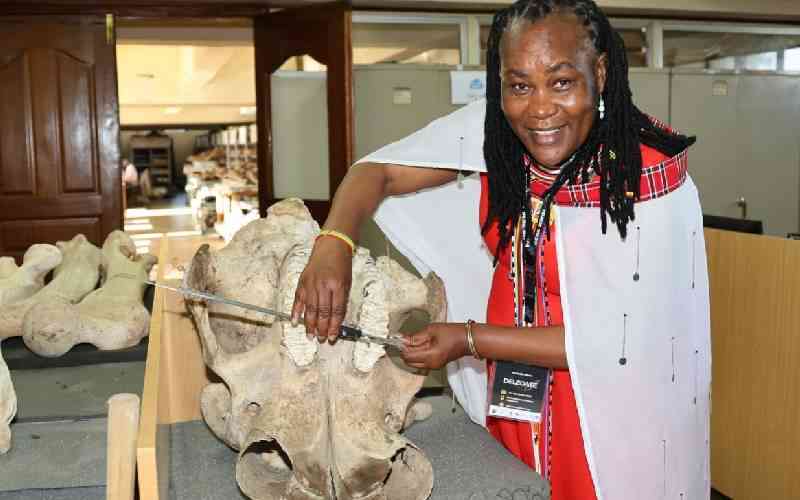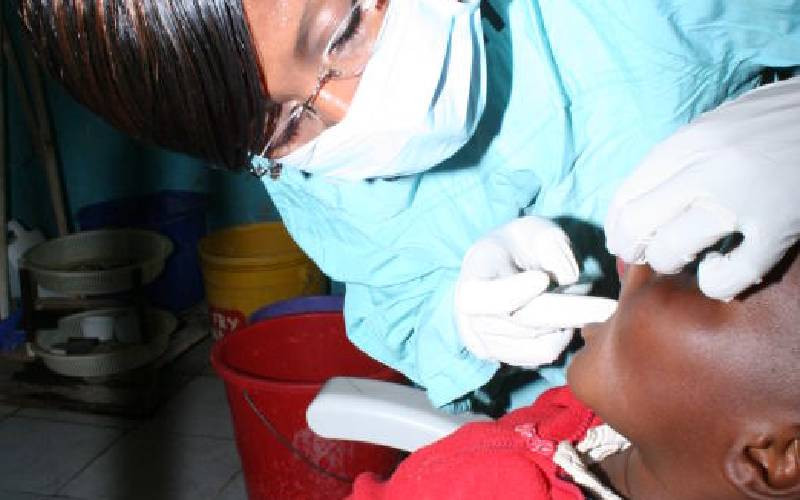
The scramble for a multi-billion medical cover for 318,000 teachers has kicked off as the current contract comes to an end in September.
The teachers’ employer has reached out to the National Hospital Insurance Fund (NHIF) over possibilities of being considered in the next phase of the Sh5.6 billion contract.
Teachers Service Commission (TSC) contracted AON in July 1, 2015 to manage the multi-billion shilling medical scheme.
The company also administers the Sh5 billion medical cover for 115,000 members of the National Police Service. The cover was previously under NHIF.
The teachers’ medical cover contract comes to an end on September 30.
Under the scheme, teachers benefit from inpatient medical care, outpatient medical services, dental and optical medical care.
The cover also carters for group life and last expense cover for principal members.
For the last four years, the scheme data reveals that the total outpatient and inpatient costs stands at Sh26.1 billion.
Inpatient benefits range from Sh500,000 to Sh1.5 million based on job groups, while outpatient is unlimited.
Optical and dental covers range from Sh10,000 to Sh25,000 based on job groups while maternity fee is a flat rate of Sh75,000.
A status report for teachers’ medical cover reveals that 515,068 have been listed for the last four years as beneficiaries under the scheme.
Universal healthcare
Overall, 1,006,673 have benefited from the scheme, with 313,333 being teachers –principal members – and 178, 272 listed as spouses.
In a letter to NHIF Chief Executive Officer Nicodemus Odongo, TSC boss Nancy Macharia requested for a proposal for consideration.
“I request the Fund to prepare and present proposals, including your indicative quote, to the Commission on how it may provide the service to teachers engaged in public service, their spouses and children,” said Macharia in a letter dated June 18.
Macharia says the cover serves some one million dependents of the government employed teachers.
On reaching out to NHIF, the teachers’ employer cites the national government policy on universal healthcare for its citizens.
“…coupled with NHIF’s public entity status, its ability, resources, professional skills and general competency in this area, the Commission would like to explore the possibility of engaging your institution to provide an enhanced comprehensive medical cover to teachers and their dependants,” said Macharia.
Sources at the TSC however hinted to Saturday Standard that the push by civil servants to quit NHIF has complicated the search.
“The Commission is worried that the beneficiaries of the civil servants’ cover are in court,” said an inside source.
The Sh4.2 billion civil servants medical cover, which includes, health, life and last expense lapsed on June 20, 2019.
Through their union -- Union of Kenya Civil Servants (UKCS) -- the civil servants have sued the Ministry of Public Service, Youth and Gender and NHIF, arguing that the insurance cover deal should not be renewed.
Among the complaints by civil servants against the national insurer is late payments to hospitals and health care givers, which has led to those insured being turned back or using their own money to cater for bills.
They claim there is confusion about the current medical scheme countrywide and that NHIF has declined to set up a 24-hour customer care centre where all queries can be sorted.
“Despite the petitioner notifying the first respondent (ministry) about the second respondent (NHIF) blatant breach of contract in a manner aforesaid, the first respondent has refused and or neglected to invoke its rights and remedies under the contract agreement to the detriment of the petitioner’s members who have been subjected to untold suffering and inconvenience,” argued union’s lawyer Alexander Jaoko.
In the case where Attorney General Kihara Kariuki is also listed as a respondent, the union claims that rogue medical facilities have infiltrated the NHIF scheme, resulting to poor services.
TSC however seeks to get proposals from NHIF to include inpatient medical care, outpatient medical services, dental and optical medical care.
Proposals will also include group life for principal members and last expense cover for principal members.
“Note that your proposal/presentation may facilitate further engagements on this matter. However, note that this should not be deemed as a promise for business and or an act that should constitute a legitimate promise or expectation in the same regard,” said Macharia.
Non-payments
Kenya National Union of Teachers (Knut) and the Kenya Union of Post Primary Education Teachers (Kuppet) top officials yesterday said despite the challenges, the teachers scheme has been successful.
Knut Secretary General Wilson Sossion said teachers are now healthier than they were four years earlier.
“There have been issues with administration of the scheme at facilities level but the benefits to teachers far outweigh the complaints,” said Sossion.
Kuppet Secretary General Akelo Misori said the union advised AON on issues they needed to rectify.
Misori said the question of facilities was raised because some teachers went to high cost centres not knowing they were referral hospitals.
“In Kisumu, for instance, teachers went to the Aga Khan Hospital and demanded treatment because they are covered by scheme. But they were turned away because that is a referral facility,” he said.
He said out-patient was the most affected.
“There was nothing wrong with the scheme other than bureaucratic issues that must be addressed. Some service providers were slow and those can be administrative issues between AON and the facilities,” said Misori.
He said some hospitals declined to treat patients citing lack of payments. “It should be clear that AON gets money from TSC which also gets the cash from The Treasury and we expected TSC to issue a statement with AON on this,” said Misori.
 The Standard Group Plc is a multi-media organization with investments in media
platforms spanning newspaper print
operations, television, radio broadcasting, digital and online services. The
Standard Group is recognized as a
leading multi-media house in Kenya with a key influence in matters of national
and international interest.
The Standard Group Plc is a multi-media organization with investments in media
platforms spanning newspaper print
operations, television, radio broadcasting, digital and online services. The
Standard Group is recognized as a
leading multi-media house in Kenya with a key influence in matters of national
and international interest.

